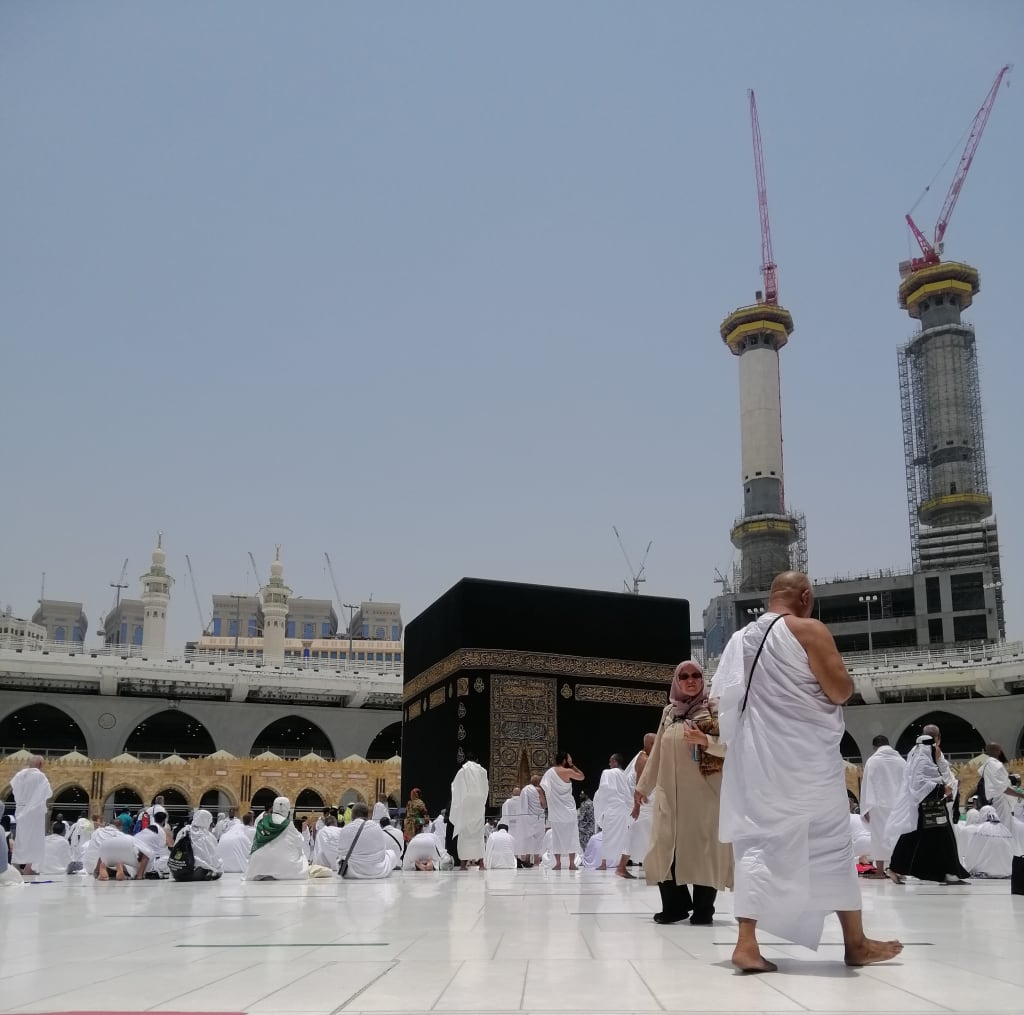
Hajj is one of the five pillars of Islam and is considered to be one of the most important religious obligations for Muslims. It is a pilgrimage to the city of Mecca in Saudi Arabia and is performed during the Islamic month of Dhu al-Hijjah.
Hajj is a time of spiritual renewal and connection with Allah, as well as a time to reaffirm one's commitment to the Muslim community. It is an event that brings together Muslims from all over the world, regardless of their race, ethnicity, or socioeconomic background.
The rituals of Hajj have been performed since the time of the Prophet Muhammad and are based on his actions and teachings. The first step in performing Hajj is to enter into a state of spiritual purity, known as ihram. This involves performing a ritual washing and dressing in white, seamless clothing. Ihram is intended to symbolize the equality of all Muslims and the purity of the soul.
Once in ihram, pilgrims travel to Mecca and perform a series of rituals over the course of several days. The first ritual is the tawaf, which involves circling the Kaaba seven times. The Kaaba is a small, cube-shaped building that is considered to be the most sacred site in Islam.
After the tawaf, pilgrims perform the sa'i, which involves running or walking between the hills of Safa and Marwa seven times. This ritual is based on the story of Hagar, the wife of the prophet Ibrahim, who ran between the hills in search of water for her son.
The next step in Hajj is to travel to the plain of Arafat, where pilgrims spend the day in prayer and contemplation. This is considered to be the most important part of the pilgrimage, as it is believed that Allah forgives all sins during this time.
After Arafat, pilgrims travel to Muzdalifah, where they spend the night in the open air and collect pebbles for the next day's ritual. The following day, they travel to the city of Mina and perform the stoning of the devil, which involves throwing pebbles at three stone pillars. This ritual symbolizes the rejection of evil and the strength of faith.
Finally, pilgrims return to Mecca and perform the tawaf and sa'i once again, completing the Hajj. The experience of Hajj is considered to be a transformative one, as it allows Muslims to deepen their connection with Allah and with their fellow believers.
In conclusion, Hajj is a deeply meaningful and significant pilgrimage for Muslims around the world. It is a time to reconnect with one's faith, to reaffirm one's commitment to the Muslim community, and to seek forgiveness and spiritual renewal. While the rituals of Hajj may seem unfamiliar to non-Muslims, they are deeply rooted in the history and teachings of Islam and serve as a powerful reminder of the shared values and beliefs that unite Muslims around the world.
Hajj is not only a spiritual and religious experience, but also a cultural and social one. It provides an opportunity for Muslims from different parts of the world to come together and exchange ideas, experiences, and traditions. Many Muslims describe Hajj as a life-changing experience that brings them closer to Allah and deepens their sense of community with other Muslims.
In addition to the spiritual and social aspects of Hajj, the pilgrimage also has important economic and political implications. The city of Mecca, where Hajj takes place, is one of the most important economic centers in the Islamic world, and the influx of pilgrims during Hajj provides a significant boost to the local economy. In recent years, the Saudi government has invested heavily in infrastructure improvements to accommodate the growing number of pilgrims, and the Hajj industry has become a major source of income for the country.
However, the management of Hajj also presents significant logistical and political challenges. The sheer number of pilgrims can be overwhelming, and the safety and security of the pilgrims is a top priority. The Saudi government has implemented a range of measures to ensure the safety of pilgrims, including crowd control measures, health screenings, and emergency response services.
In addition to logistical challenges, Hajj has also been the subject of political controversy. The Saudi government has been criticized for its management of the pilgrimage and its handling of incidents such as stampedes and other accidents that have resulted in the deaths of pilgrims. There have also been debates within the Muslim community over issues such as the role of women in Hajj and the use of modern technology to facilitate the pilgrimage.
Despite these challenges, Hajj remains an important and deeply meaningful experience for Muslims around the world. It is a testament to the strength and resilience of the Muslim community and a reminder of the shared values and beliefs that unite Muslims across borders and cultures. Hajj is a unique and profound pilgrimage that offers Muslims a chance to connect with their faith, their community, and their shared history and heritage.
About the Creator
Hamza Chaudhary
Hamza Saeed is a talented content writer with a passion for crafting engaging stories. With 7 years of experience in the industry and has skills in creating compelling copy for a variety of mediums, including blogs, social media, marketing.






Comments
There are no comments for this story
Be the first to respond and start the conversation.